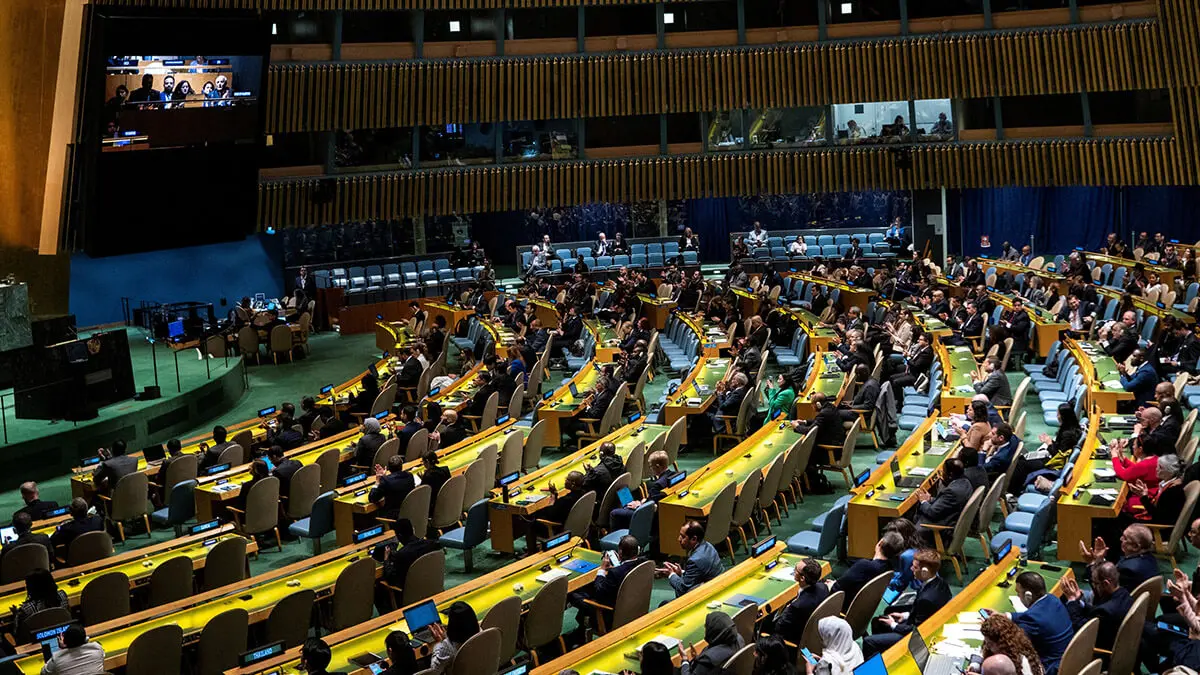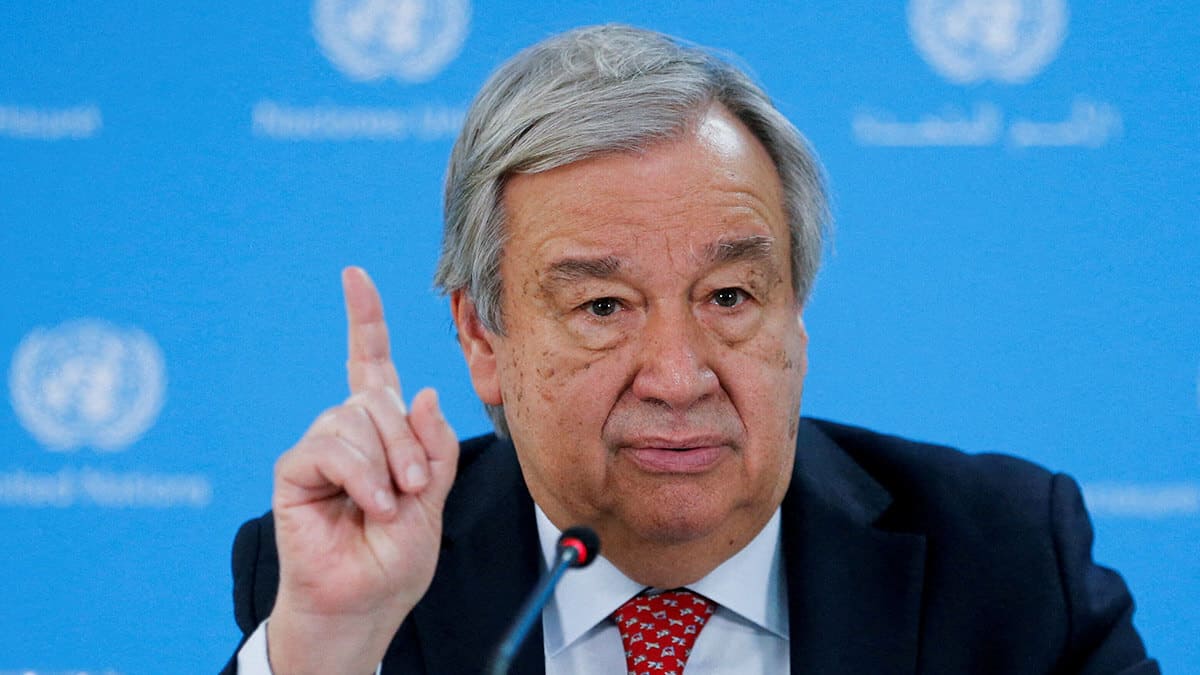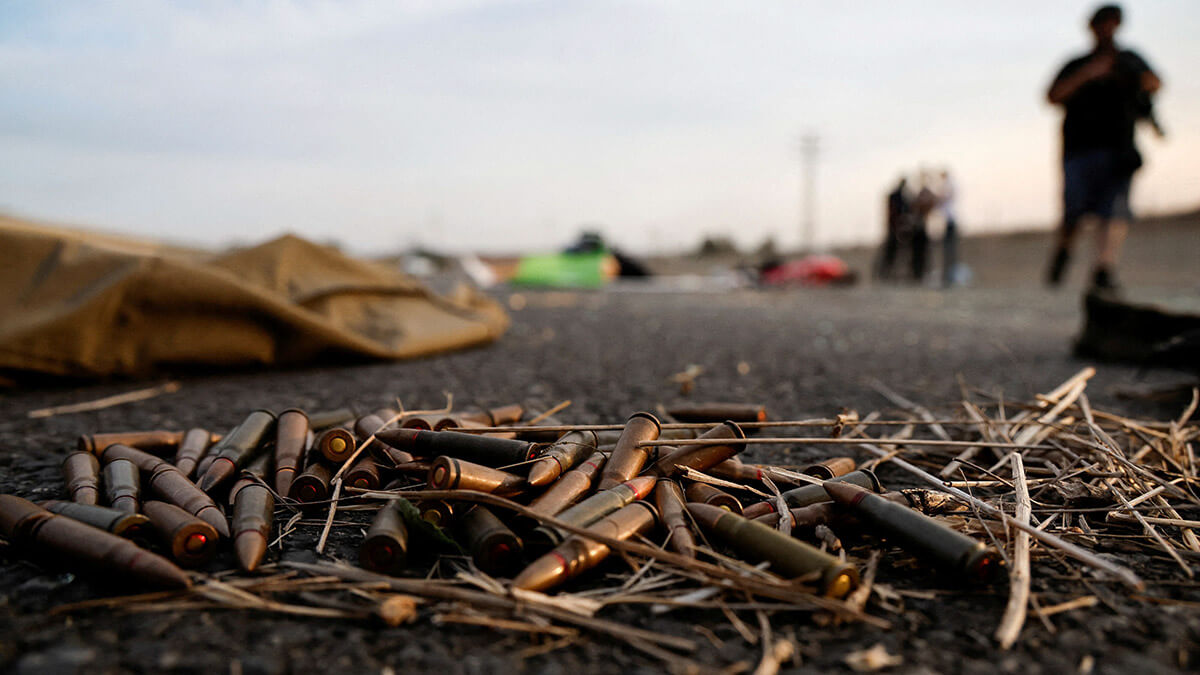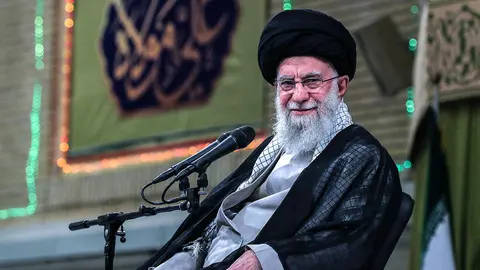UN General Assembly adopts resolution calling for the creation of a Palestinian state

The UN General Assembly has adopted a resolution calling for ‘an end to the Israeli occupation of the Palestinian territories and the establishment of an independent Palestinian state’.
The resolution, entitled ‘Peaceful settlement of the question of Palestine’, had 157 votes in favour, eight against (Argentina, Hungary, Israel, Federated States of Micronesia, Nauru, Palau, Papua New Guinea and the United States) and seven abstentions (Cameroon, Czech Republic, Ecuador, Georgia, Paraguay, Ukraine and Uruguay).
With this resolution, the General Assembly ‘affirms its conformity with international law to the two-state solution of Israel and Palestine living side by side in peace and security within recognised borders on the basis of previous agreements’.
The resolution also emphasises ‘the need for urgent collective efforts to initiate credible negotiations on all final status issues in the Middle East peace process’.
In order to advance the two-state solution, the General Assembly decided to hold a high-level international conference to ‘peacefully resolve the Palestinian question and implement the two-state solution’. This meeting will be organised in New York in June and co-chaired by France and Saudi Arabia.
Pending the conference, the resolution calls on the parties to ‘act responsibly and comply with international law and their previous agreements and obligations, both in their policies and in their actions, in order to reverse negative trends, including any measures taken on the ground that are inconsistent with international law’.

The text adopted by the majority of the General Assembly stresses ‘the realisation of the inalienable rights of the Palestinian people, first and foremost their right to self-determination and their right to establish their independent State’.
In addition, the UN body, based on recent decisions issued by the International Court of Justice, urges Israel to ‘end its illegal presence in the occupied Palestinian territories’. The United Nations considers all Palestinian territories, including the West Bank, East Jerusalem and the Gaza Strip, to be occupied.
Israel seized the West Bank, East Jerusalem and the Gaza Strip after the Six-Day War in 1967. However, during the Oslo Accords, which were signed in 1993, Israel approved the establishment of the Palestinian National Authority (PNA) in the West Bank and Gaza as part of a transitional process towards a negotiated solution for peace between Israelis and Palestinians.

Following these agreements and their subsequent implementation, the West Bank was divided into three areas (A, B and C) with different levels of Palestinian and Israeli control.
On the other hand, Israel withdrew completely from the Gaza Strip in 2005. Soon after, the terrorist group Hamas began ruling the Palestinian enclave after a violent confrontation with its rival, Fatah, over control of the territory.
‘The question of Palestine has been on the agenda of the United Nations since the establishment of the organisation and remains the most important test of its credibility, authority and the existence of an international system based on law,’ said the Palestinian ambassador to the UN, Riyad Mansour, before voting on the resolution.

It was a UN General Assembly resolution in 1947 that divided British-ruled Palestine into two states: one Arab and one Jewish.
Only Zionist leaders accepted the resolution, resulting in the creation of Israel on 14 May 1948, while their Arab neighbours rejected the plan, declaring war on the newly created Jewish state.
For the Israeli representative, these latest resolutions are based on a ‘reckless disregard for the truth’.
‘After the 7 October massacre perpetrated by Hamas more than a year ago, the UN's entrenched anti-Israel bias has been laid bare for all to see,’ he said, asserting that the UN still does not ‘sufficiently address the murder, rape and torture of 1,200 people and the kidnapping of 240 people perpetrated by Hamas‘.

‘Instead, the Assembly focuses on resolutions sponsored by Cuba, the Democratic People's Republic of Korea, Venezuela and the Syrian regime,’ he added.
He also considered that if they were ‘truly interested in bringing solutions to the war-torn region, they would abandon their obsessive efforts to delegitimise Israel’.
They would also focus on ‘how to bring the hostages home, how to dismantle Hamas and how to eradicate hatred of Israel from the Palestinian school system’. ‘Isn't it time to hold Iran, Hamas, Hezbollah and other terrorist organisations accountable for the blood they have shed?’ he asked.
The Israeli government led by Benjamin Netanyahu opposes the creation of a Palestinian state because it believes that a Palestinian state at this time would be a reward for Hamas after its brutal attack in which it killed 1,200 people in southern Israel and kidnapped more than 200, more than 100 of whom are still held hostage in Gaza.










